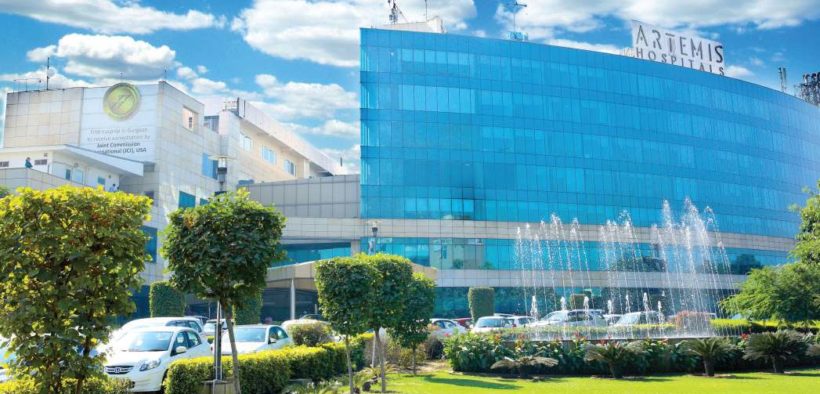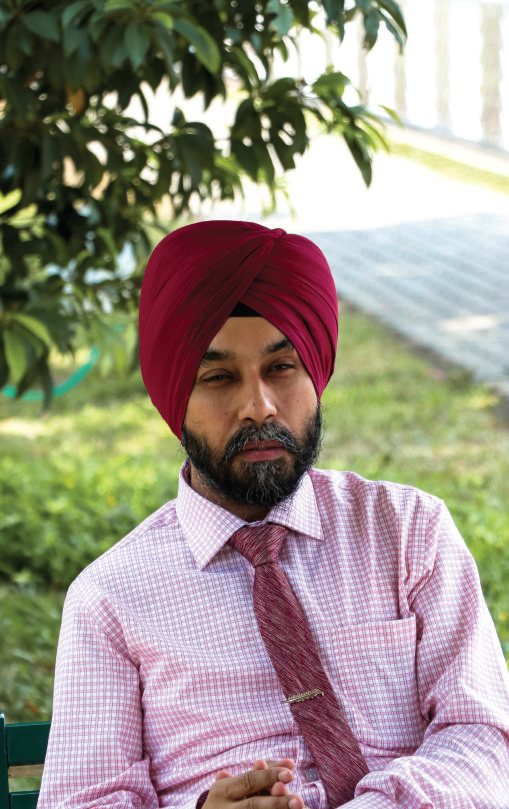In Search of Excellence

Dr Randeep Singh, senior consultant and head of oncology at Artemis Hospital, Gurgaon, wants young Indian medicos to focus on research, especially translational research
By Sumi Thomas
Statistics indicate that India could soon be facing a virtual cancer epidemic: 17.3 lakh new cases by 2020. Do you think lifestyle is a contributing factor or is this related to genetics?
India is already facing a cancer epidemic. There are three major zones where we define the etiology or the causes of cancer. The first is a lifestyle, the second is bad genetics and the third is bad luck. All these three contribute equally to cancer. Of course, if someone has a bad lifestyle, the likelihood of him developing cancer will be higher. Hence, it is partially true that cancer is indeed a lifestyle disease.
So this is the area that you focus on through awareness campaigns…
There is a two-pronged strategy when it comes to awareness initiatives: one looks at prevention and the other looks at the screening. During the screening, we include every healthy individual, irrespective of his lifestyle. This leads to early detection or even detection in the pre-cancerous or pre-malignant stage before the problem converts to cancer. The second kind of initiative looks at both prevention as well as educating about the right lifestyle.
In your clinical practice, what have you seen as the misconceptions that lead to late diagnosis or to patients ignoring symptoms of cancer?

There are many misconceptions about cancer as well as its diagnosis. One common myth is that cancer is a punishment for sins committed, either in this lifetime or in a previous birth. Because of which you have to suffer now. Because of this kind of stigma, a lot of people do not disclose their cancer diagnosis even to close relatives. They are afraid of what people will think of them.
The second misconception is that a biopsy, which is often necessary for detection, will cause cancer to spread. The belief is that if you touch or irritate a cancerous area, it will spread to the rest of the body as well. This is a pure myth. People also consider cancer a communicable disease. And they think that they should isolate the cancer patient. They also often have the notion that they should not treat a cancer patient, as any treatment will only help cancer spread further. Another myth that needs to be broken is that cancer treatment is very costly and that the middle class and the poor may not be able to afford it at all. This is a nihilistic attitude. Partly, this nihilistic attitude is also an influence of physicians on the patients.
“THERE ARE THREE MAJOR ZONES WHERE WE DEFINE THE ETIOLOGY OR THE CAUSES OF CANCER. THE FIRST IS LIFESTYLE, THE SECOND IS BAD GENETICS AND THE THIRD IS BAD LUCK”
Dr Randeep Singh
Head of Oncology, Artemis Hospital, Gurgaon
Industry experts say that the number of clinical trials in the country will grow because there are new, effective regulations in place. In your experience, what are the challenges you have faced in this industry?
Clinical trials are highly controlled experiments. When we call them experiments, we do not mean that human beings are being treated like guinea pigs. It means that every step has to be monitored carefully so that the results will be applicable to the masses. Clinical trials are the future because if we won’t do clinical trials, we will not be able to develop better molecules for cancer treatment.
The challenge is that since clinical trials are done in an extremely controlled environment, they require a proper setup. They require the setting up of a committee to monitor the trials and an institute that can do the actual monitoring. Earlier, the laws were quite stringent; the government is now adopting strategies to ensure clinical trials are carried out in a proper manner. It is the duty of the media also to realize the need for clinical trials and provide social support. Providing the right information will help patients and their families. Most people feel that clinical trials are a sort of experiment that could affect patients in a negative way. This does not happen. There is a strong scientific basis behind a clinical trial. It requires a lot of scientific clearances before a molecule comes up for clinical trials on humans.
Could you tell me a little bit about your journey as an oncologist?
I am a medical oncologist, trained at the prestigious Tata Memorial Hospital in Mumbai. I have been consulting at various private hospitals and I also have my own private practice in Delhi. I have been in the city for 8 years now and have worked with hospitals ranging from Max Healthcare to HCG.
There has definitely been a change in this sector over the years. The incidence of cancer has been increasing. Simultaneously, the positive change is that patients are now accepting the diagnosis and the treatment. Patients as well as their primary healthcare providers, the physicians, are now ready to trust the fact that we can do something to help treat cancer. Also, now better facilities are available for the treatment of cancer. Earlier there were not so many cancer centers or cancer experts available. Now, both the infrastructure and expertise are there. These are the positive changes I have seen.
When it comes to medical education in India, how do you think it compares to that in the west?
Our medical education is at par with the western countries. We meet our colleagues across the globe and attend international conferences. Our oncologists have also been faculty at international conferences, giving lectures. So it can be safely said that training in India is at par with the western world.
Where we are lacking in is fundamental research, translation research and more exposure to the lab. We need to make the lab more available to the younger generation of medical students so that they develop an inclination for research.
Your lifestyle is probably quite hectic. How do you unwind?
I try to keep my Sundays off work. I ensure that my patients are looked after and then I take the day off. Once in six months, I take a vacation with the family. My hobby is driving, and I enjoy long drives.
















